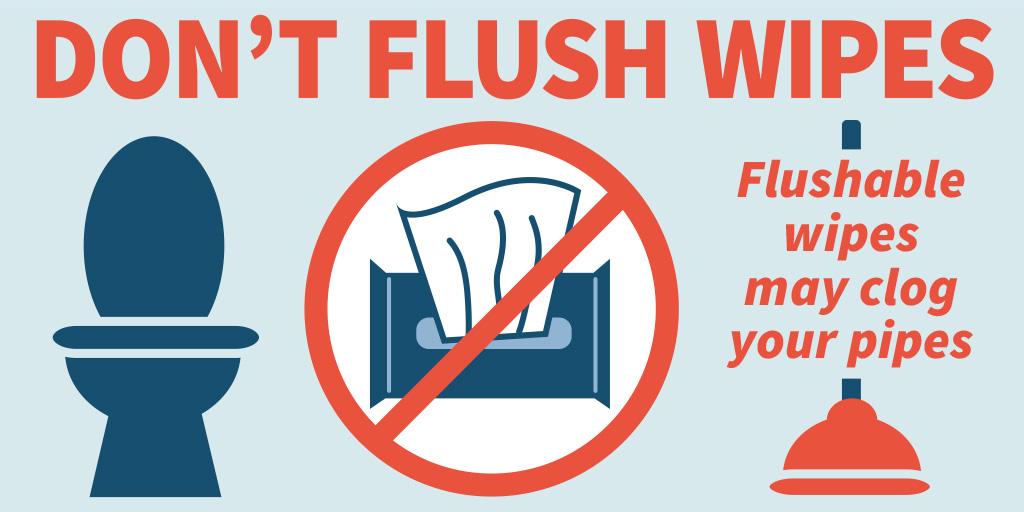LAWTON, Okla. (KSWO) - Hundreds of thousands of dollars. That’s how much the City of Lawton said damage from “flushable wipes” is costing taxpayers.
Officials are urging residents to stop flushing wipes down toilets and into the sewage system.
Over the last year, the City of Lawton has spent nearly $245,000 on issues caused by flushable wipes in the sewage system. Officials said staff responds on 6th and Belmont for the worst clean up at least once a week.
When Glenn Hinton became the Superintendent of Wastewater Collection five years ago, there were only about 30 sanitary sewer overflows, or SSOs, per year.
He said this year, the department is on track to hit 200 SSOs due to flushable wipes that he calls “false advertisement.”
Each call costs over $200, according to city officials.
“The sewer system is only designed for toilet paper, poo and pee,” Hinton said. “There’s just no better way to put it. Anything else, grease is major problem. It’s problem the number two problem next to the wipes.”

Staff elevates the flow at sewer lift stations, using a grinder and catch basket to keep pumps from clogging.
Hinton said people should be aware, flushing these wipes can cause sewage to back up into your home.
“When you flush something or wash your clothes or your dishes, whatever, that water goes somewhere right? It all goes down the same line, the city main. You get those wipes in there and they start clogging it up, then eventually you can have back ups into your home,” Hinton said.
Principal equipment operator Thierry Schroeder said they saw an increase in use of flushable wipes throughout the pandemic, causing crews to work overtime.
“The wipes causing lines to stop up, making us having to work 24/7. We have an on call crew and last night, I worked late. We all worked late, and it has to be taken care of,” Schroeder said.
The second biggest issue is people pouring grease down the sink.
Schroeder said it needs to be put in a can and disposed of properly.
“Better to be in the trash at the landfill than in our sewer lines,” Schroeder said. “It all goes to the Wastewater Plant, which is to my left here and it causes havoc there. It’s havoc on the equipment really bad right now.”
From February 2021 to last month, the city received over 350 calls regarding debris related sewer calls.
Copyright 2022 KSWO. All rights reserved.









